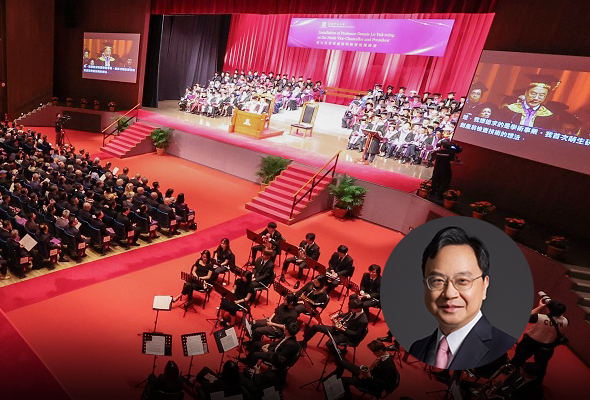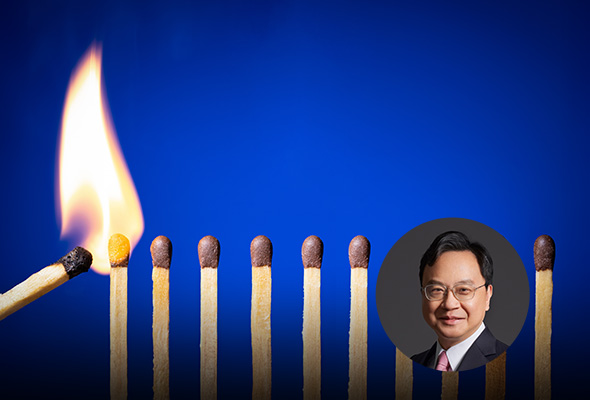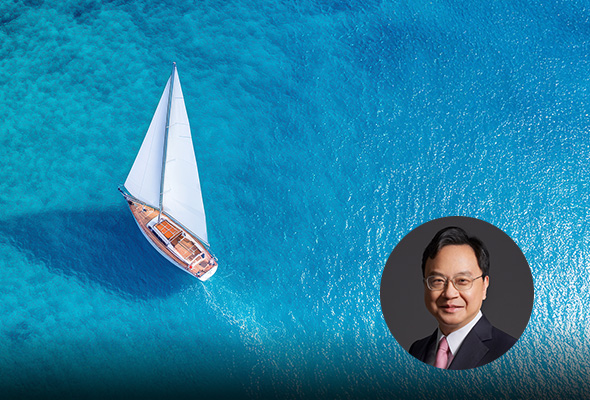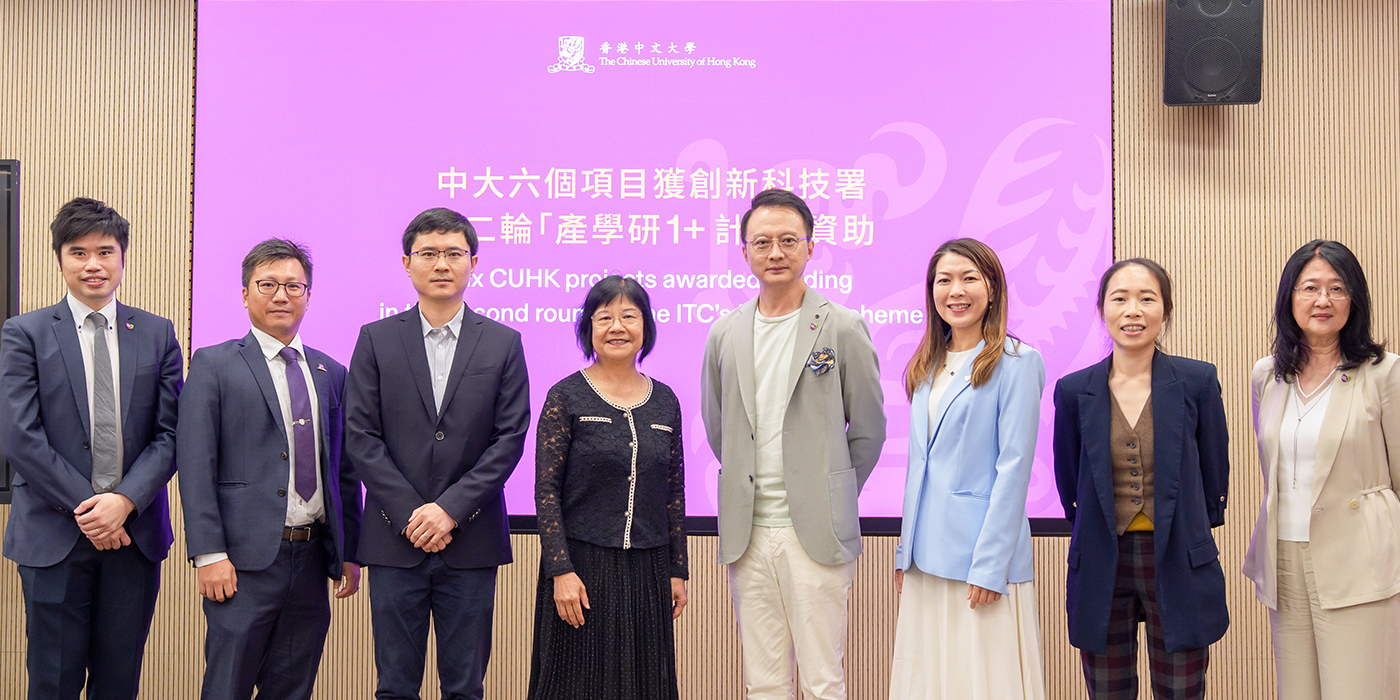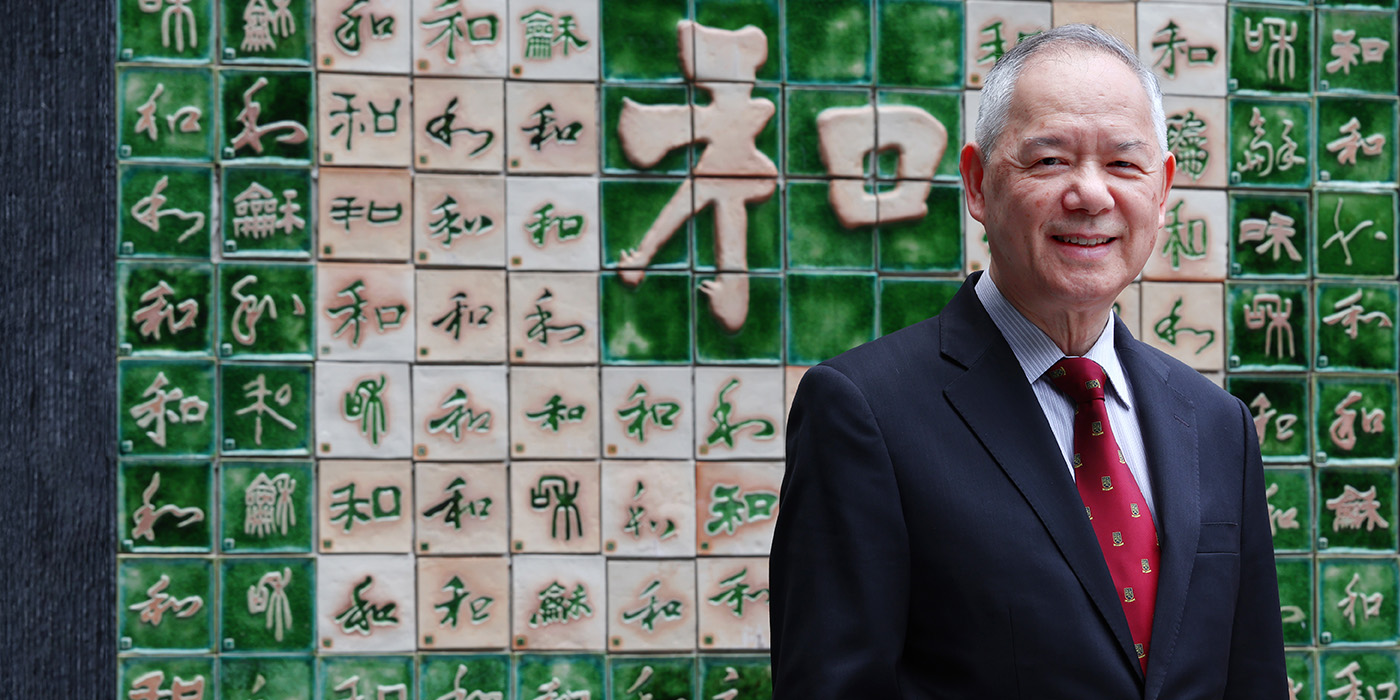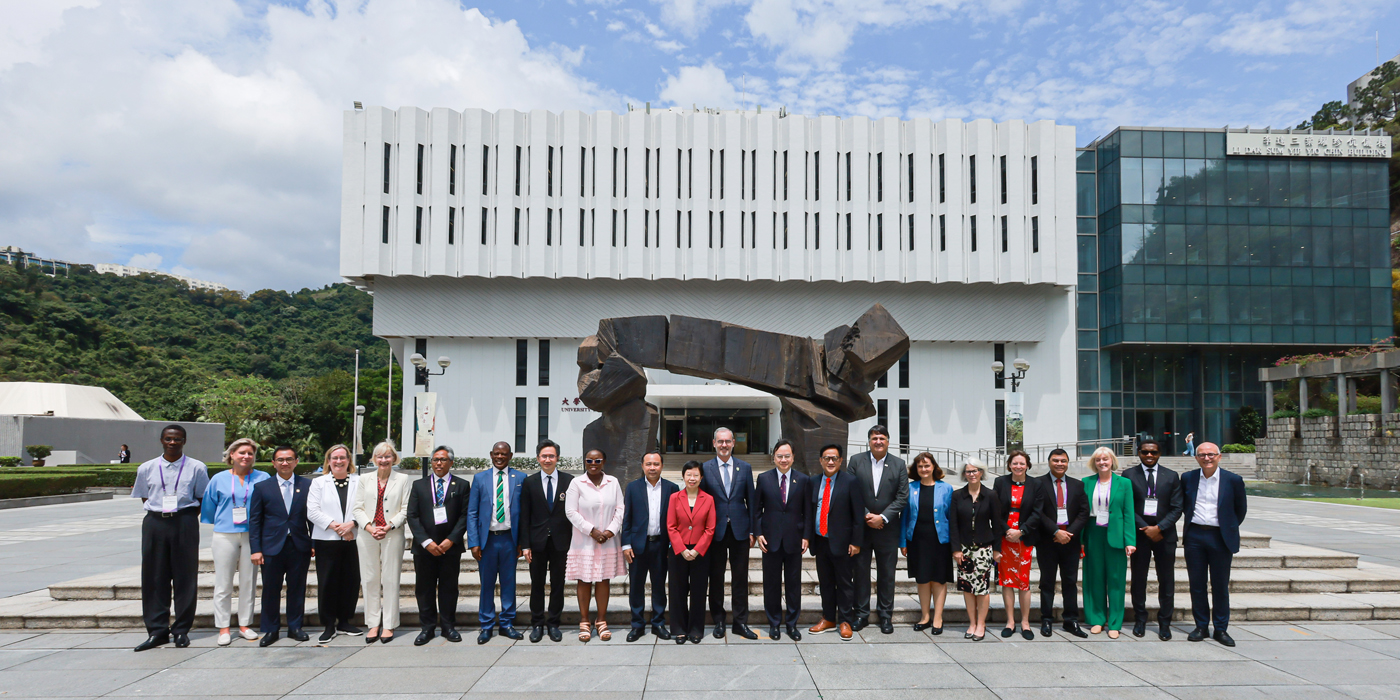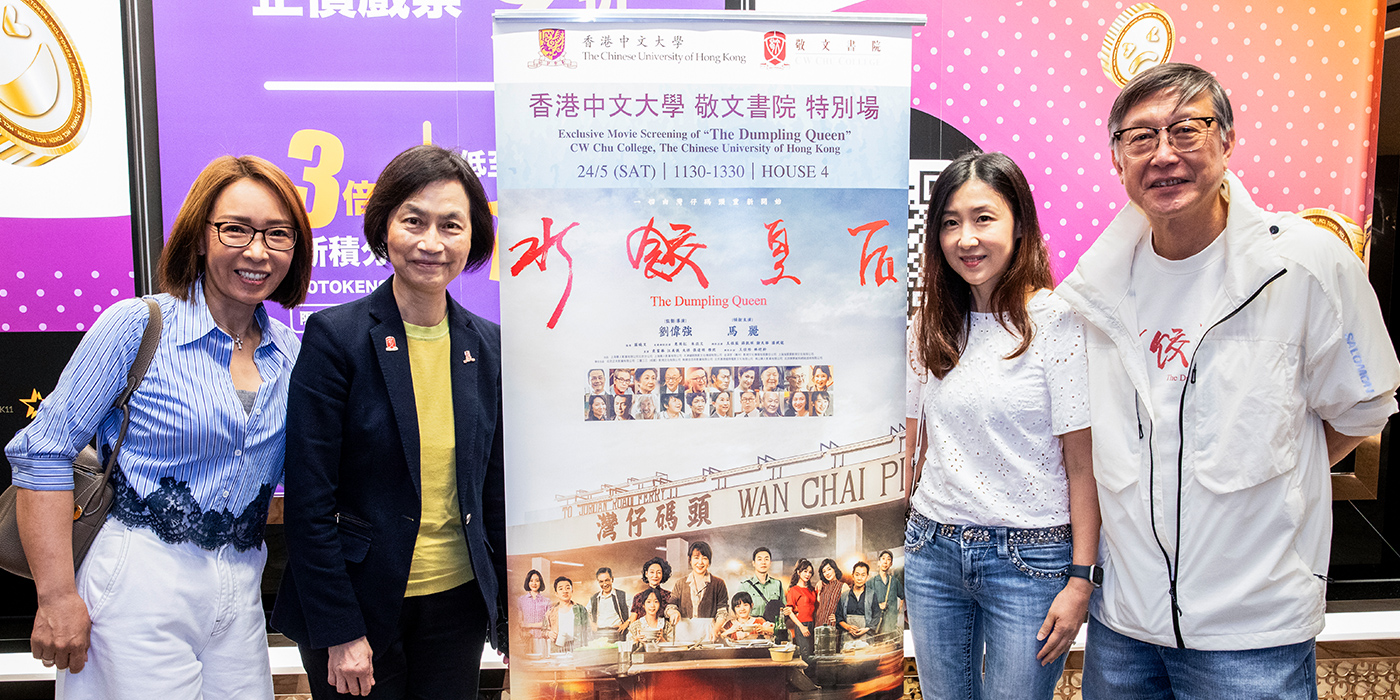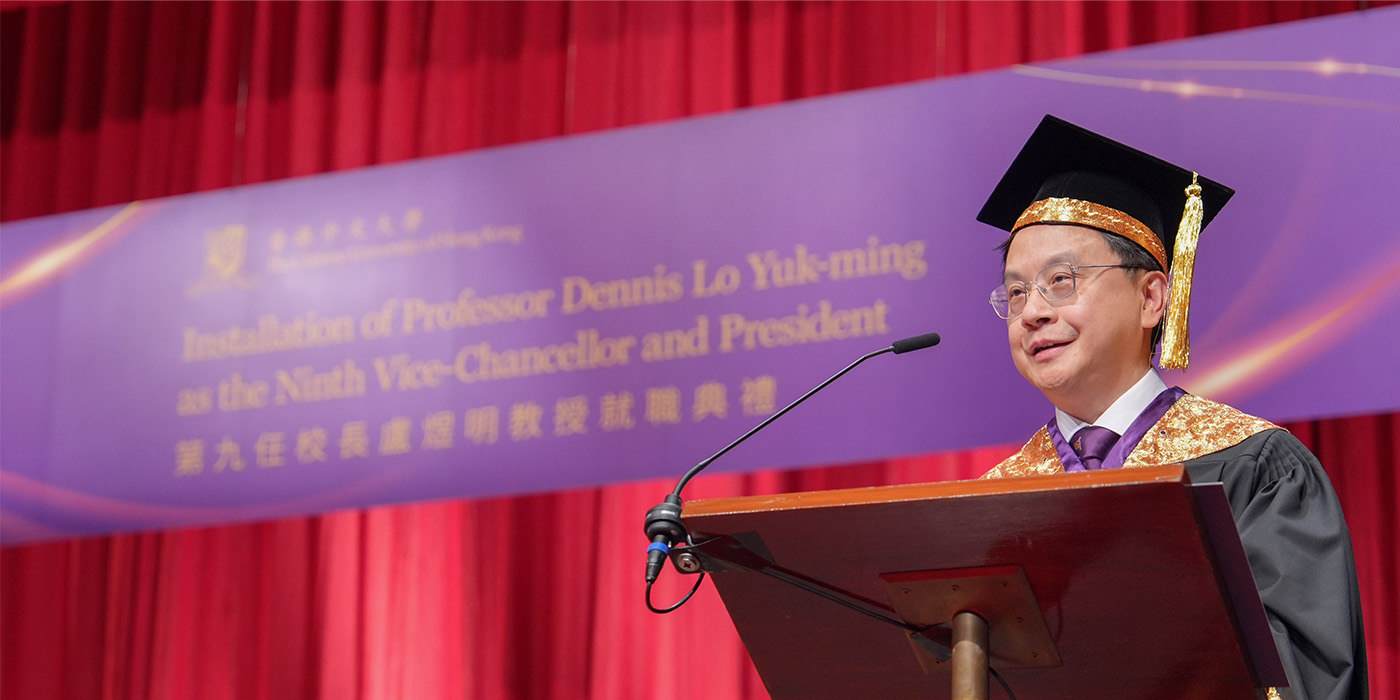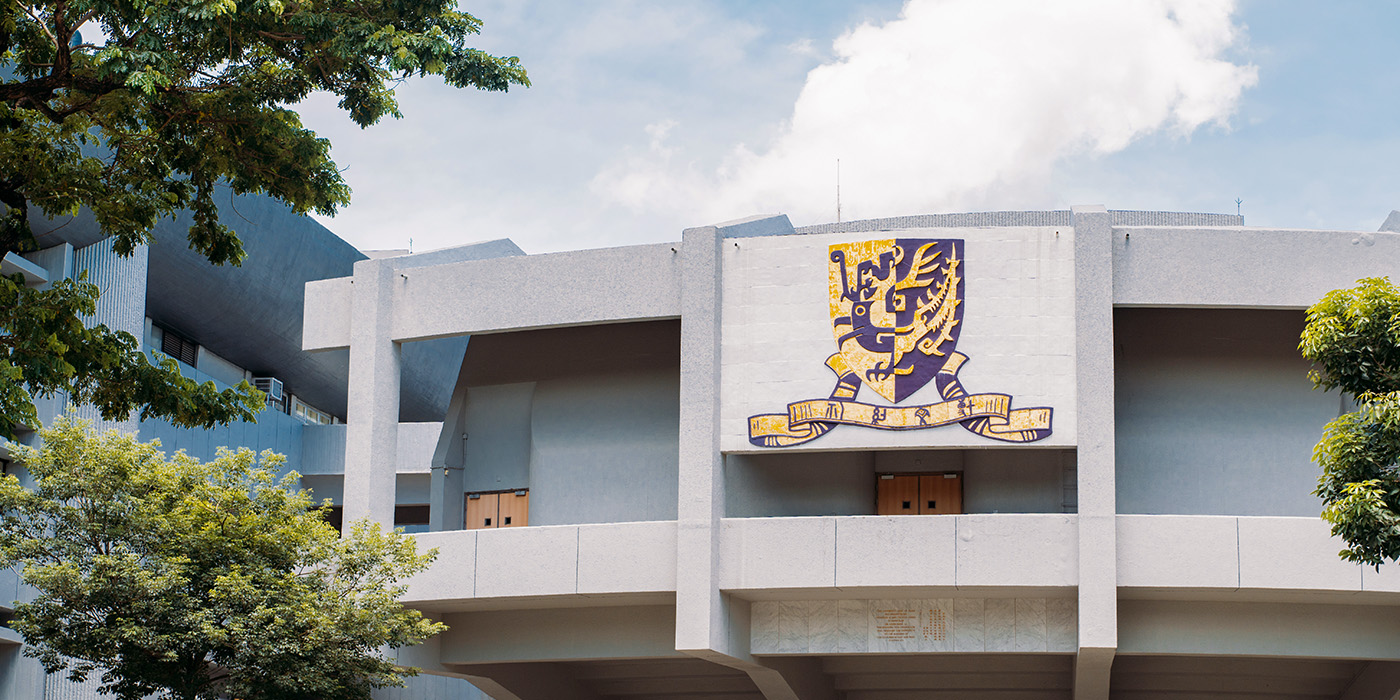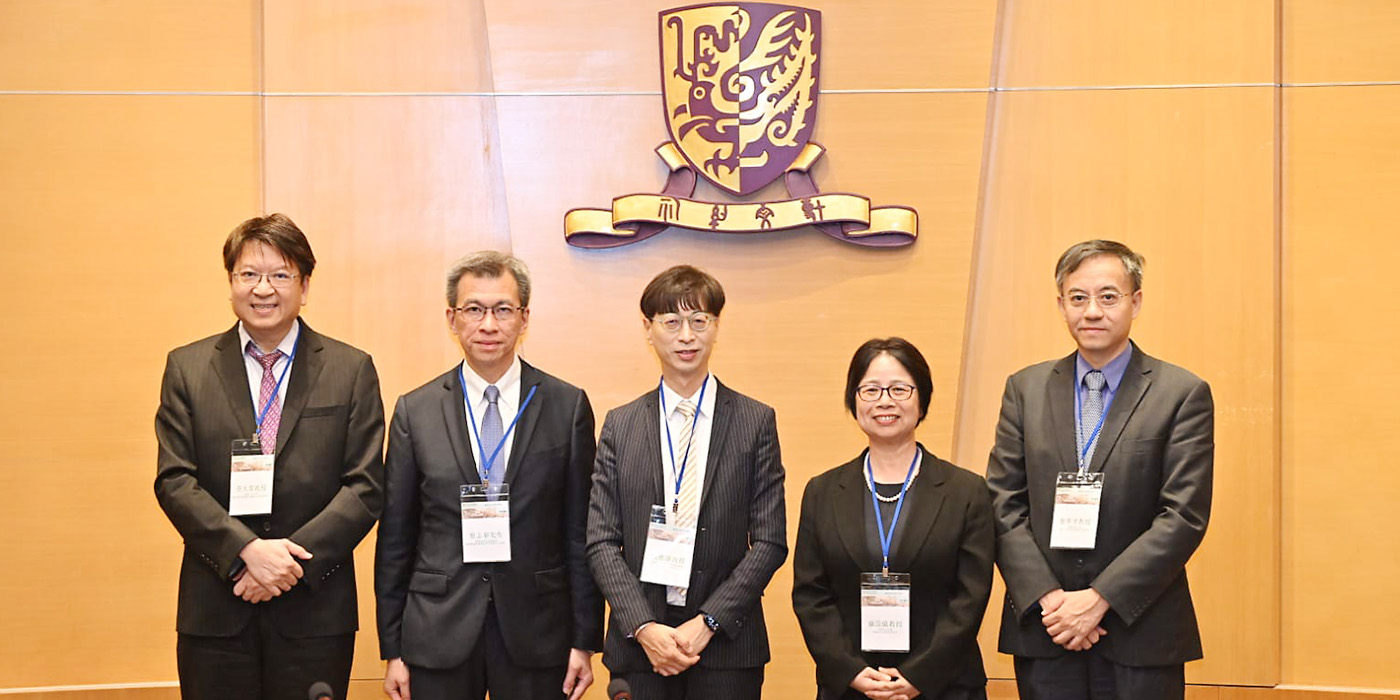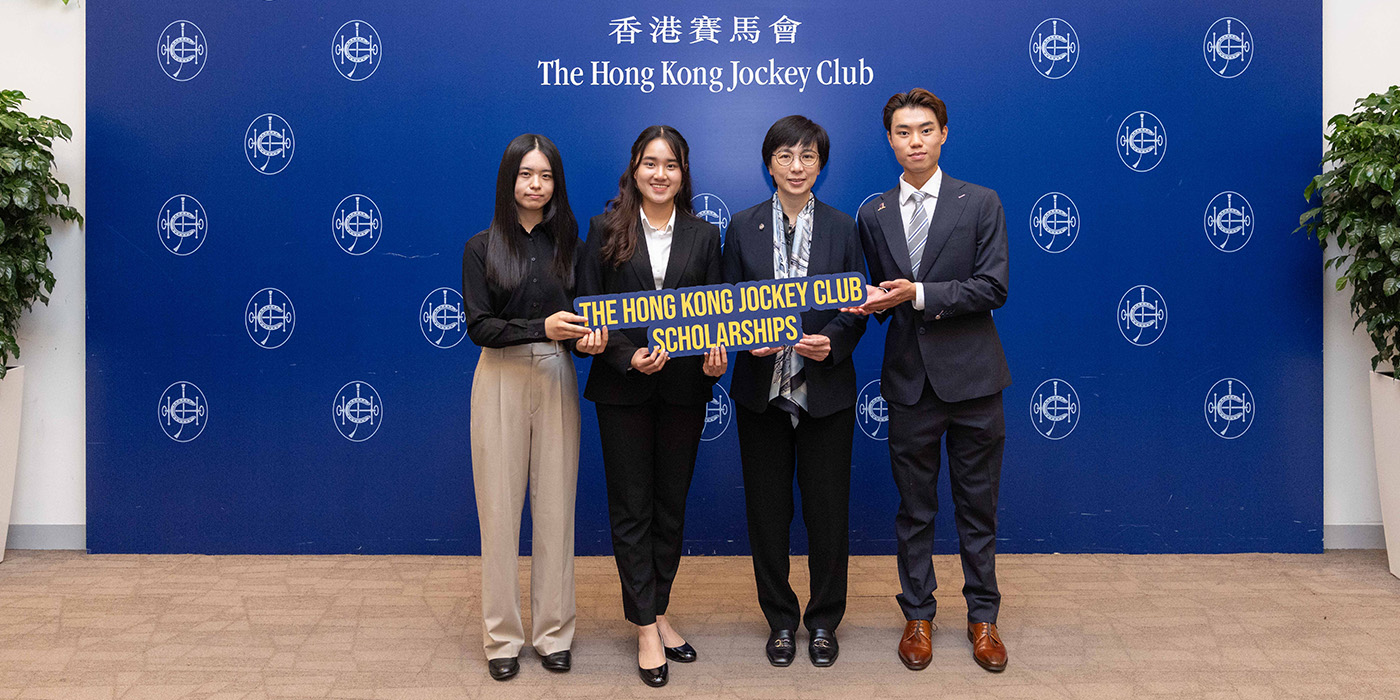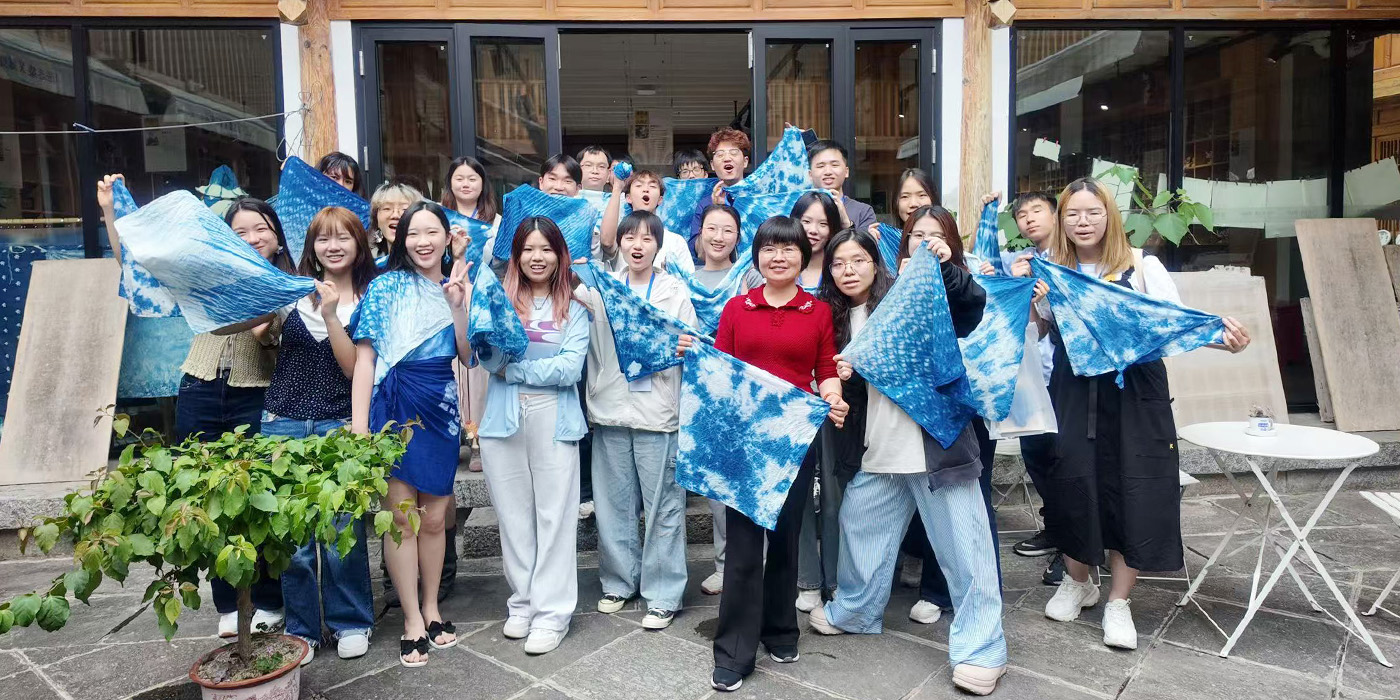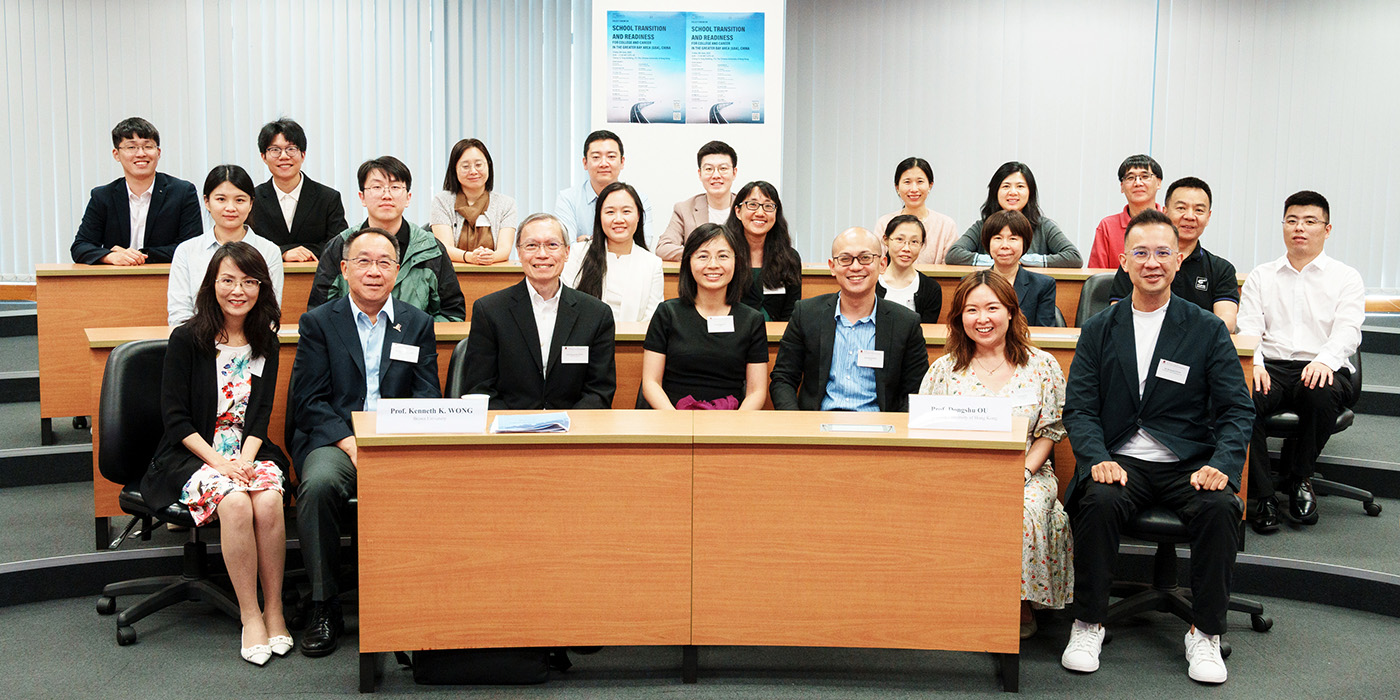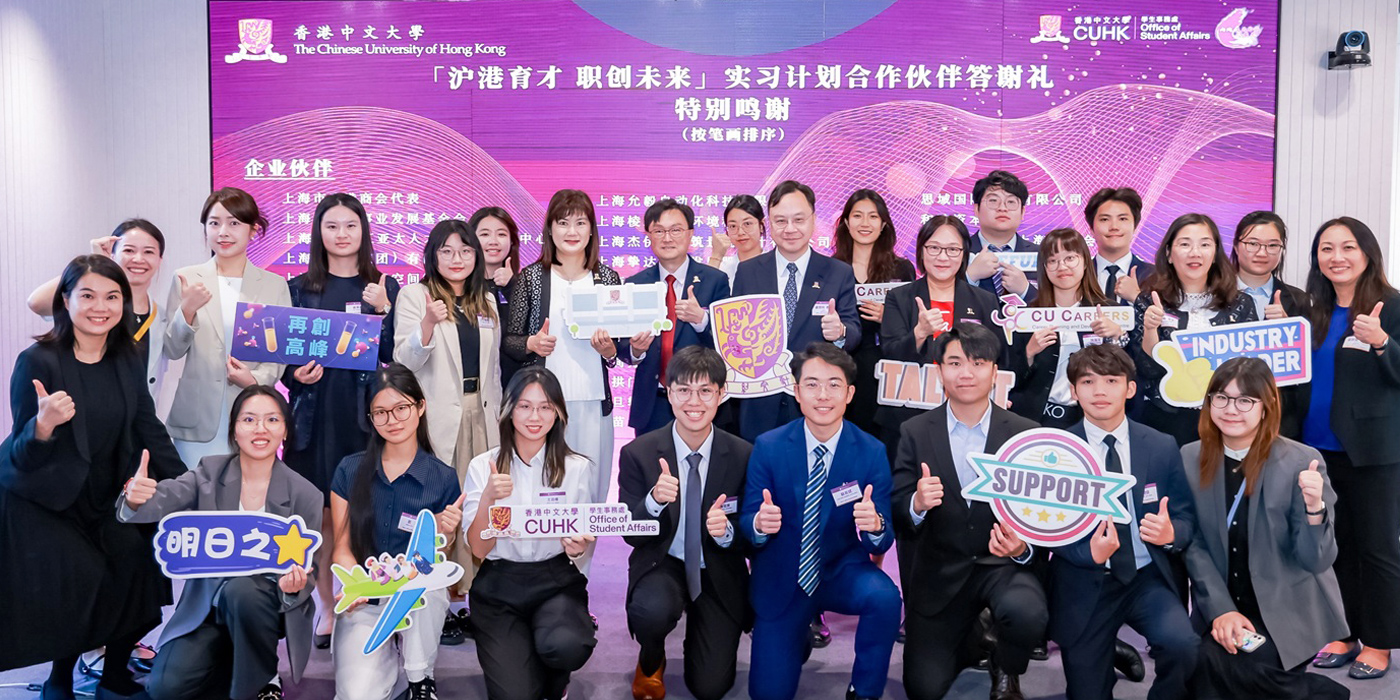Bookshelves of CUHK
“Books are a uniquely portable magic,” said novelist Stephen King when asked about the wonders of reading. We can never travel to every part of the world, nor can we experience every possible lifestyle—but reading makes everything possible. Reading books outside ones’ own disciplines opens the doors to treasure. The University Librarian and two professors share their thoughts on reading in the third part of Bookshelves of CUHK series.
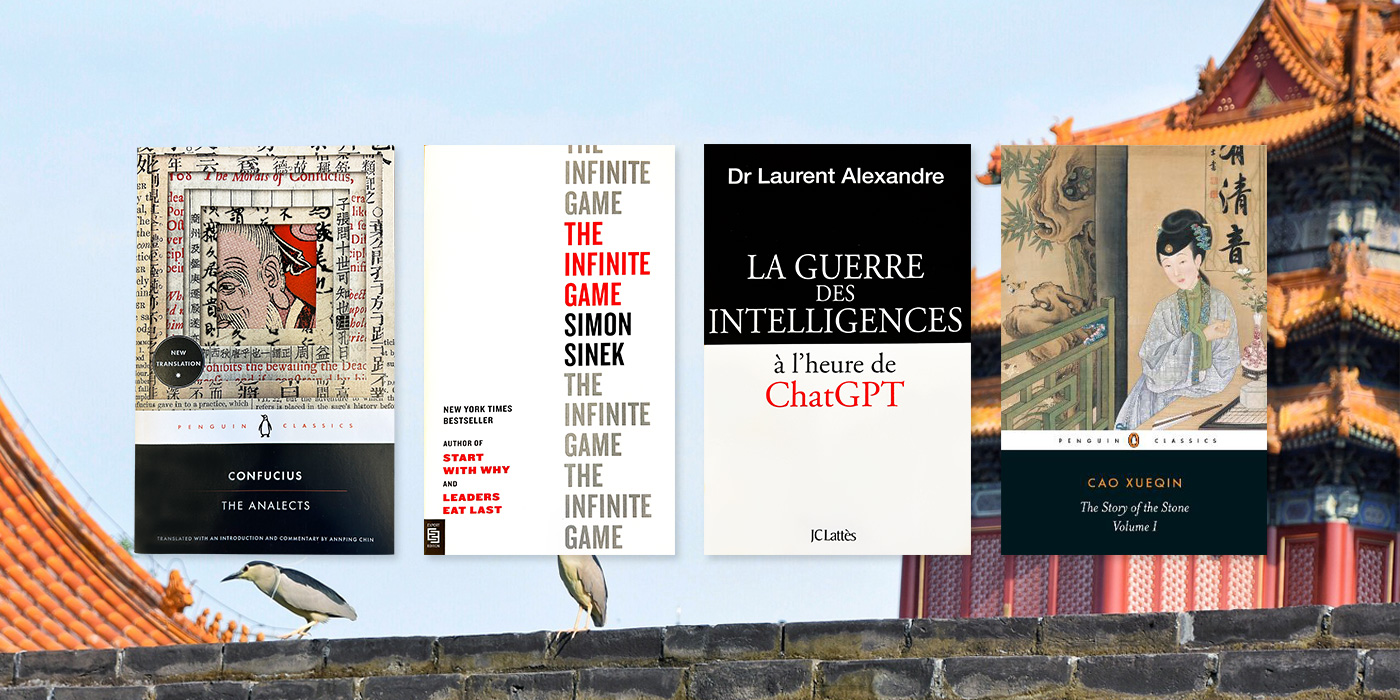
Benjamin Meunier, University Librarian
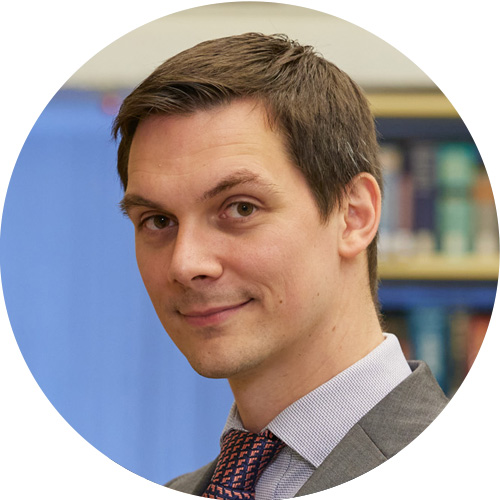
Recently, I found myself revisiting the sayings of Confucius in his Analects. One quote that resonated with me was, “Learn as though you would never be able to master it; hold it as though you would be in fear of losing it.”
Since my arrival in Hong Kong last April, my book collection has been steadily growing, primarily with works related to Chinese culture and history. Classics by authors such as Mencius and Chuang Tzu have found a place on my shelf. My colleagues in the Library were kind enough to lend me a copy of the Story of the Stone, a captivating novel that I found hard to put down.
Reading this book, whether on the bus, at home, or in cafes, transported me to a bygone era of China. It was a delightful experience, especially when I had the opportunity to stay on Peking University’s campus in the old Imperial gardens. I could almost see the characters from the novel, reciting their poems by the lakes, attended by their servants.
The novel elegantly weaves the real world with the realm of dreams, blurring the lines between reality and illusion. This theme is encapsulated in an inscription that appears throughout the story:
“Truth becomes fiction when the fiction’s true;
Real becomes not-real where the unreal’s real.”
This 18th century novel raises questions that are still relevant today. How do we determine what is real and what is “fake news”? How do we understand the implications of leading a virtual life that one might prefer over their real one?
In the current era of the “lying flat” phenomenon in China, the protagonist Jia Baoyu’s indolence seems to mirror many contemporary young people. His dismissive attitude towards the pursuit of fame and reputation, which he believes were devised to mislead future generations, is articulated very strongly in a tirade towards his close friend Xue Baochai when she calls him out for his apparent laziness. After reading the novel, given the outcome of the story, I wondered about the frequent outbursts displayed by Baoyu. His obstinate refusal to confirm to the norms and expectations of aristocratic life under the Qing dynasty, rather than mere character flaws, become subtle critiques of the environment he inhabits.
A great book has the power to transport you to another world, sparking a sense of awe. Some recent research published in the Harvard Business Review suggests that cultivating this sense of wonder can have positive effects on our energy levels and wellbeing.
With so many rapid advancements in technology and management, I have also been exploring the realm of Artificial Intelligence (AI). Laurent Alexandre’s La Guerre des Intelligences à l’heure de ChatGPT’* is a fascinating read. The author discusses potential new illnesses that AI could trigger, such as the “Virtual Reality Depersonalization Syndrome”. This condition could cause individuals to feel detached from their real identity due to excessive exposure to AI-powered virtual environments.
Despite these potential risks and our collective unpreparedness for AI, Dr Alexandre concludes on an optimistic note for the “ChatGPT generation”. His message, although primarily addressed to European youths, is universally relevant. As we navigate the challenges of the coming decades, it will require a collective effort that transcends continental boundaries. It took his message as a call for global collaboration to address historic changes.
I also enjoyed Simon Sinek’s The Infinite Game, where he argues that contemporary definitions of “success” are not sustainable, either for individual happiness or for societal benefit. Instead, he calls on people to strive to find their purpose, or their “just cause”, and to focus on achieving that without competing or comparing oneself with others. Nearly 2,500 years ago, in the Tao Te Ching, Laozi says “When you are content to be simply yourself and don’t compare or compete, everyone will respect you.”
*Editor’s note: The book is in French only. An English summary of the book is available in CUHK Library’s collections: Lexcellent, Christian. “Artificial Intelligence According to Laurent Alexandre.” Artificial Intelligence Versus Human Intelligence. Switzerland: Springer, 2019. 23–27.
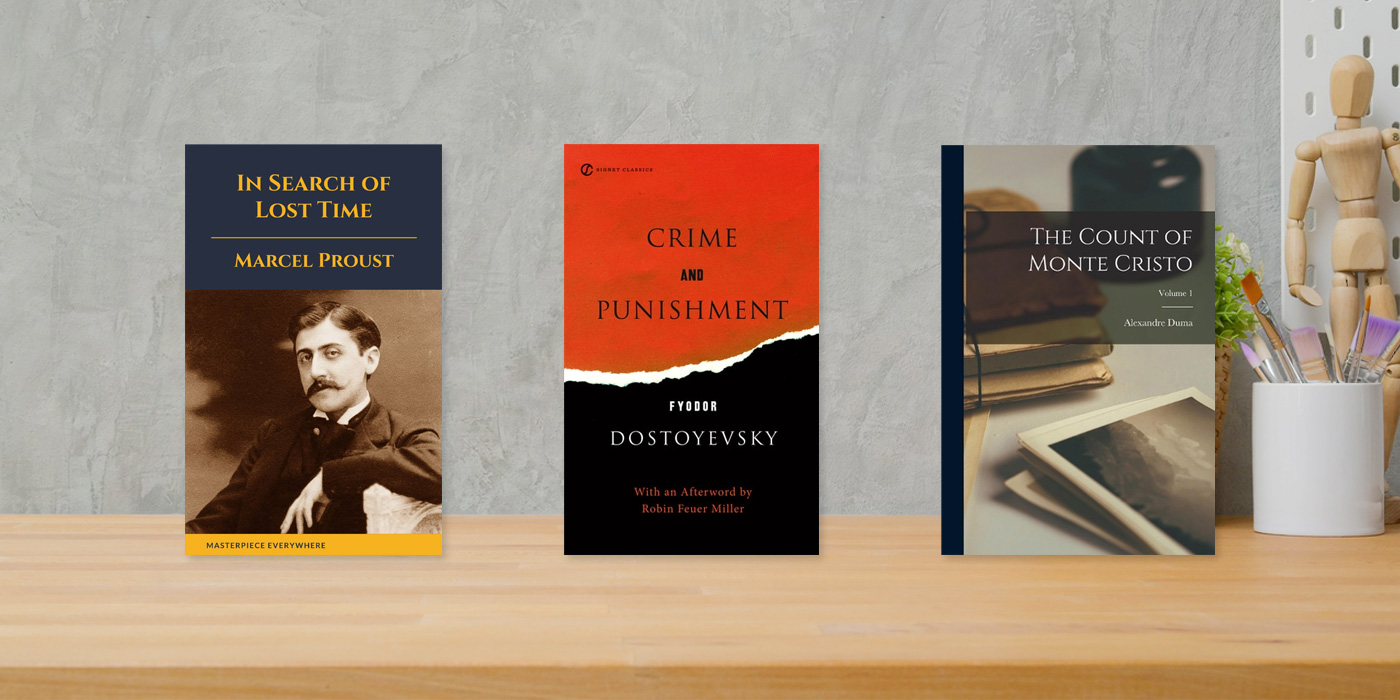
Peter Ferretto, Associate Professor of Architecture

Some years ago, I had a sudden realisation that I was approaching 50 and hadn’t read any of the modern classics, an intellectual cavity that had to be addressed. I made a conscious decision to concentrate on my reading, drafted a list of books and set off. Each book was a mammoth undertaking that required training, akin to preparing for a marathon. Here is the story of my journey.
I started with the most daunting, Marcel Proust’s In Search of Lost Time — the Mount Everest of novels, a 3000-page epic broken down into 7 segments. By all rational accounts, this was the wrong novel to start with. Reading became nauseating, there was no apparent plot, and the meaning, known as the author’s stream of consciousness, was elusive to me. I persisted, and after a while, an imperceivable crack started to appear: Characters entered the story that I could relate to, as if I knew them personally; Relationships that I thought only applied to me were all of a sudden staring at me in the face. From that point onwards, it was plain sailing reflecting on the loss of time.
Having endured this tour de force, I needed to read a book that had a plot, a storyline that would allow me to build up some reading stamina. I chose a book about revenge, but this time accompanied by meticulous plotting. The Count of Monte Cristo by Alexandre Dumas is a gripping adventure about hope, justice, vengeance and forgiveness, vivid to the point it feels cinematic. Every chapter leaves you in a state of suspense, a book I am sure Hitchcock would have been proud of.
It was now time to return to hardcore training. Crime and Punishment by Fyodor Dostoevsky. This is a story about a young law student, Raskolnikov, who struggles with life in 19th-century St. Petersburg. Every action he takes is loaded with anguish and as a reader, you accompany him in his thinking that evil can be justified. He holds on to his argument only to discover that once he has achieved his goal, he is more lost than before. Guilt and horror set in and his life begins to unravel. Dostoevsky’s delirious writing allows one to understand that arguments always have counterpoints. Only by analysing these can one truly understand one’s own point.
Reading is similar to running. It helps me clear my mind. It is never an easy task but once completed it makes you feel sharper and connected with the world. It enables me to escape my work, to see things from a different perspective. My next run will be with Fernando Pessoa, The Book of Disquiet.
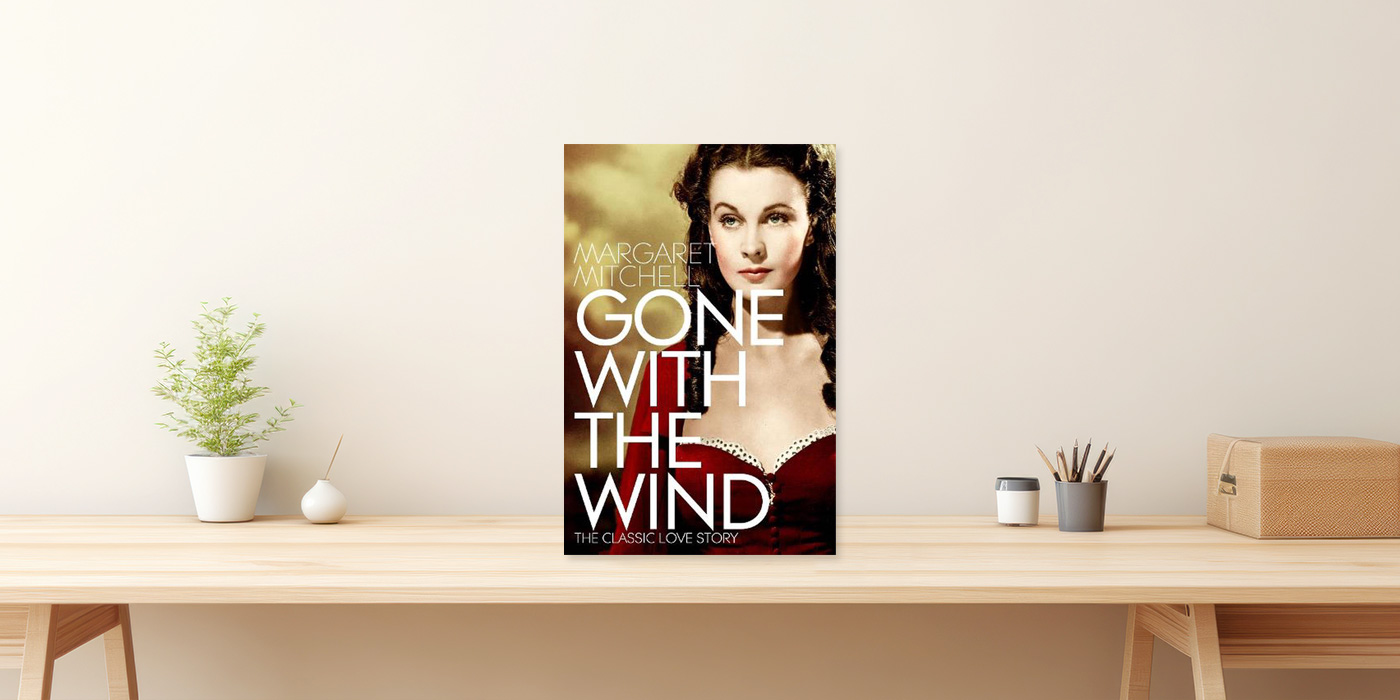
Jun Yu, Assistant Dean (Mainland Affairs) of Medicine

After work, my happiest and most relaxing moment is reading novels. Among them, the novel I have read many times and keep by my side is Gone with the Wind. When I started reading the original English version, I had to constantly look up the words in the dictionary. Gradually, as my vocabulary expanded, I read faster and my English also improved. Every time before I start, I always limit myself to reading for only 20 to 30 minutes but as soon as I open this novel, I am attracted by its beautiful writing, the ups and downs in the plot, and the brilliance of humanity it exudes. I often lose track of time, read on into the midnight, and carry the wonderful moments of the story to my dreams.
Gone with the Wind, written by Margaret Mitchell in 1936, won the Pulitzer Prize for Literature in the next year. It broke all publishing records at the time. It has become a literary work appealing to readers all over the world. I admire the heroine Scarlett O’Hara very much. Scarlett has strong vitality, great charm and charisma. She is strong and brave, acts decisively, never gives up, never despairs, and always has aspirations and longing for the future. Whenever I encounter difficulties and setbacks in my life, I will motivate myself with “Tomorrow is a better day!”. Scarlett taught us perseverance, to cherish the present and hold hopes for the future. The emotional entanglement between Scarlett and Rhett Butler is another main line in this novel. The two lovers are separated by some invisible barrier and cannot be together forever, which is a great pity. This book also teaches us to treasure what we already have. What we have may be the best.
As told to Joyce Ng and Jenny Lau
Images designed by Matthew Wu




